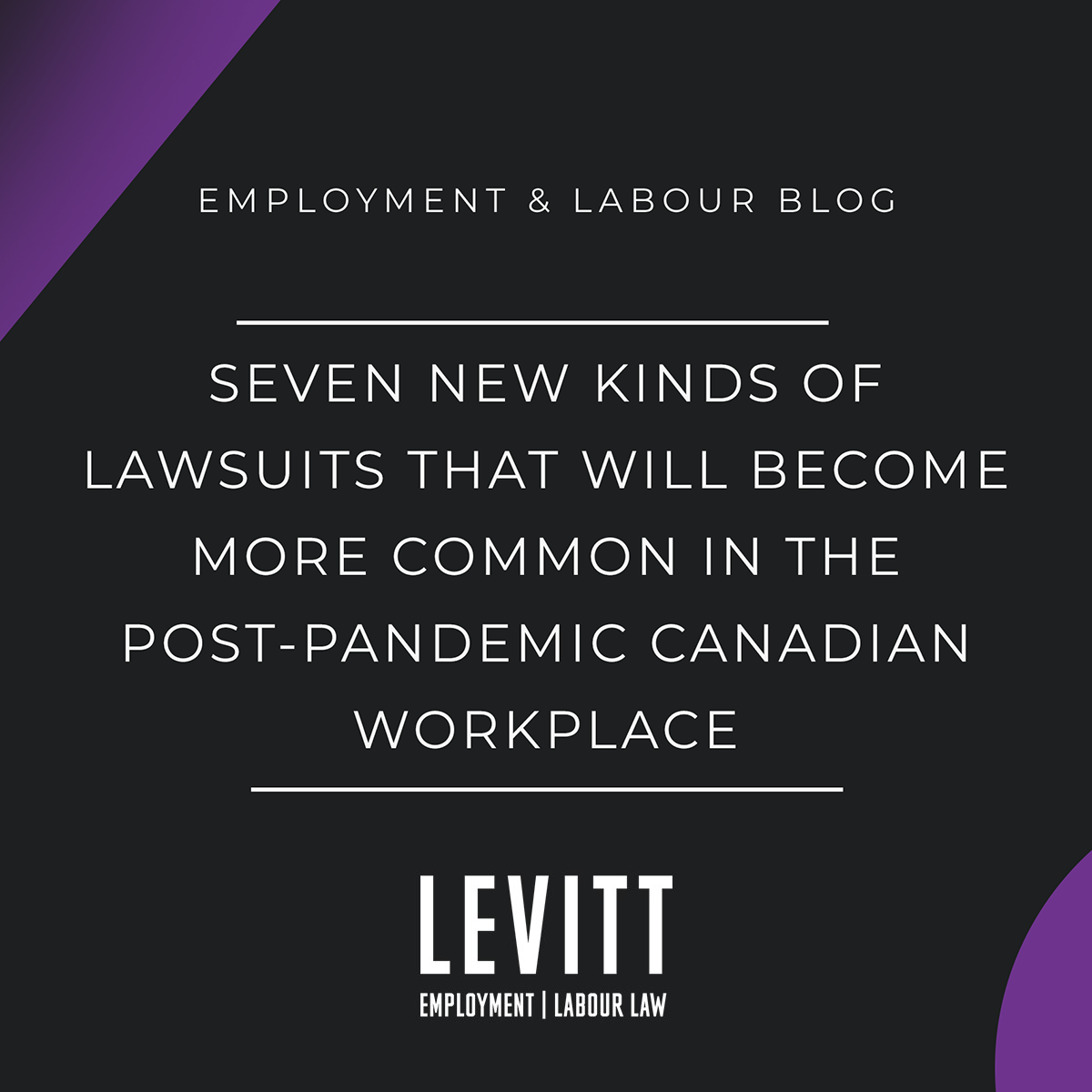COVID-19 has affected nearly every aspect of our lives, especially the profession of Canadian employment law. Instead of hindering activity in the field, COVID-19 has created an exponential increase in both the amount and frequency of workplace-related lawsuits.
In desperate attempts to keep businesses afloat, employers not only had to face the health and safety challenges posed by COVID-19 but battle the pandemic’s adverse effects that arrived in the form of lawsuits for layoffs, work reductions, and reduced hours and wages.
Legal experts predict that this proliferation will continue in the forms of the following seven kinds of new lawsuits:
- New overtime claims
Employers cannot permit employees (other than those exempt from overtime pay in the province’s employment legislation such as Ontario’s Employment Standards Act) to work more than a certain amount of hours, depending on the province, without paying them overtime pay. In Ontario, it is set at 44 hours per week.
As more people are working from home, new concerns have arisen regarding the potential for abusing or taking advantage of overtime pay.
- Lawsuits for failure to accommodate
Primary caregivers have been disproportionately impacted during the pandemic as school and daycare closures continue to be an issue. With businesses reopening and vaccine distributions increasing, primary caregivers are facing pressure from employers to reenter the workplace, despite having children who engage in e-learning and do not have an alternative caregiver.
Within the same realm, employers cannot legally force pregnant women, whose doctors order them to stay away from work, or parents who have to stay home to look after their children and assist with their online learning, with no other alternative, to return to the workplace.
- Privacy breaches
Many employees are focusing their attention on the wrong kinds of privacy breaches. Employers can place tattleware on work computers to monitor and track their employees’ movements while working remotely. As these computers store highly personal data, and as many employers will not resist the impulse to utilize the information obtained to their benefit, there will likely be an increase in litigation over privacy violations.
- Lawsuits by employers based on second jobs
Before COVID-19, it was not uncommon for an employer to take legal action against one of their employees centered around claims of choosing to work from home. Sometimes the employees in question can secretly have a second and sometimes third job. While COVID-19 will likely cause a downtrend in this behaviour, it will not completely eradicate it. As such, when employers learn of their employees breaching their duty of full-time service, they could then sue and seek to reclaim a portion of wages paid.
- Lawsuits against employers for not enforcing public health guidelines resulting in the employee contracting COVID-19
Once vaccinations are widely and readily available, any employee that contracts COVID-19 in a workplace may be suing their employers for not requiring compulsory vaccinations or not following public health guidelines in the workforce.
- Lawsuits against employers by employees with anxiety or related disorders
Employers have the right, subject to ensuring a safe workplace, to order employees to return to work. Concerns arise, however, when considering employees who have anxiety disorders and are petrified to return to their workplaces. If these employees are fired due to their refusal to return, it constitutes a breach of the employer’s obligation to accommodate a disability. This has to be based on a proven medical disability, rather than simply fear.
- Lawsuits for not accruing vacation pay
Many Canadian employers do not appropriately accrue or account for employees’ vacation entitlements, in a pandemic or otherwise. However, this occurrence’s likeliness has increased due to COVID-19, when the presence or absence of employees’ vacation benefits becomes less visible due to remote working.
While these times may not necessarily be exciting, they certainly are new.
To learn more about whether or not you have a lawsuit contact us today. Choose Levitt LLP When You Can’t Afford to Lose.

